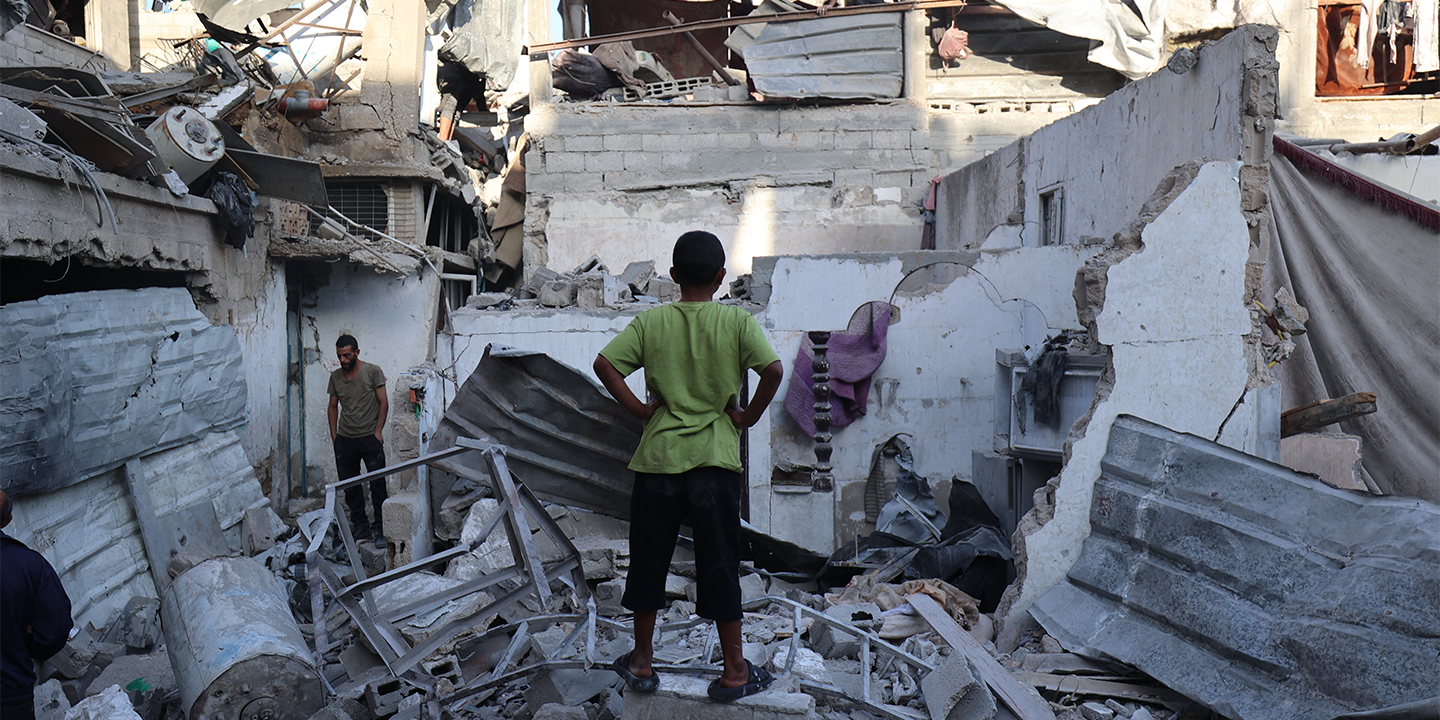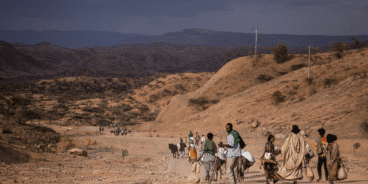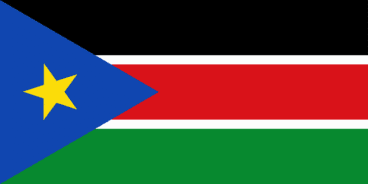

Atrocity Alert No. 455: Israel and the Occupied Palestinian Territory, South Sudan and Ethiopia
Atrocity Alert is a weekly publication by the Global Centre for the Responsibility to Protect highlighting situations where populations are at risk of, or are enduring, mass atrocity crimes.
CEASEFIRE IN GAZA REMAINS FRAGILE FOLLOWING DOZENS OF VIOLATIONS BY ISRAEL
Since the first phase of the ceasefire in Gaza took effect on 10 October, approximately 80 violations by Israeli forces have been reported. Continued airstrikes and gunfire have killed over 95 Palestinians and injured 230 others. At the same time, Israeli authorities have only allowed entry of approximately half of the agreed-upon humanitarian aid in the ceasefire deal and still refuse to open the crucial Rafah border crossing.
Just two weeks into the latest ceasefire, Israel’s actions have exhibited a familiar pattern: reneging on commitments to facilitate aid and halt hostilities under the guise of alleged Hamas violations of the ceasefire or supposed “missteps” by Palestinian civilians. On 17 October an Israeli tank shelled a Palestinian family’s vehicle in Gaza City, killing 11 people, including seven children. Israel claimed the family had crossed the so-called yellow line demarcating the initial withdrawal area – a line Israeli forces only began marking after the attack.
Two days later, Israel intensified airstrikes on Gaza after the deaths of two Israeli soldiers, which the government attributed to Hamas in breach of the ceasefire. However, Hamas denied involvement and officials from the United States told several news outlets that the soldiers had reportedly drove their vehicle over unexploded ordnance. Despite this, Israel vowed retaliation, temporarily suspending the entry of humanitarian aid and killing approximately 44 Palestinians on 19 October alone. That same day, four people were killed when Israeli forces targeted a UN Relief and Works Agency (UNRWA) school-turned-shelter. In response, UNRWA Commissioner-General Philippe Lazzarini renewed his calls for “independent investigations into [Israel’s] blatant breaches of international humanitarian law,” stressing that “the guns must fall silent and accountability must come.”
As part of the agreement, 20 living hostages held in Gaza were exchanged for nearly 2,000 Palestinians prisoners and detainees held by Israel – around 1,700 of whom had been held without charge. Many had been unlawfully detained for decades. Israeli forces issued threats against public celebration for the return of Palestinian loved ones, circulating flyers warning that “anyone who participates in such activities exposed himself to punishment and arrest,” according to an Israeli official. In the following days, Israeli Prime Minister Benjamin Netanyahu accused Hamas of violating the ceasefire due to delays in recovering the bodies of deceased hostages within the 72-hour deadline. The delays are reportedly due to the difficulty in retrieving remains from under the rubble in Gaza, something Israeli intelligence has been aware of for months and has been exacerbated by Israel’s refusal to allow the entry of the necessary machinery.
Since the start of the ceasefire, there have been a series of clashes between Hamas and other armed groups, with Hamas claiming they were targeting those believed to be working with Israel. As a result, at least 33 Palestinians have been killed by Hamas, several of whom in public summary executions documented in video footage.
To ensure the current ceasefire – the third in two years – is enforced and sustained, the international community must guarantee the presence of independent monitors to oversee its implementation and encourage all parties to uphold the ceasefire agreement in full. Israel must refrain from weaponizing humanitarian aid and cease ongoing hostilities in Gaza, while Hamas must ensure the security of Palestinians and refrain from targeting opponents.
SOUTH SUDAN FACES DEEPENING CRISIS AMID POLITICAL INSTABILITY AND GROWING VIOLENCE
On 13 October the UN Commission on Human Rights in South Sudan (CHRSS) reported that armed clashes are unfolding in South Sudan at levels not seen since a cessation of hostilities in 2017. In a press release, Commissioner Barney Afako warned, “Unless there is immediate, sustained and coordinated political engagement by the region, South Sudan risks sliding back into full-scale conflict with unimaginable human rights consequences for its people and the wider region.”
Since February hostilities between government forces and opposition groups have escalated, alongside intensifying inter-communal tensions. The situation deteriorated further following the house arrest of Vice President Riek Machar and his wife, Interior Minister Angelina Teny, on 26 March. Recent legal actions against Machar, including charges linked to past violence, and the earlier detention of at least 22 political and military figures aligned with him by forces loyal to President Salva Kiir, have deepened political divisions and fueled fears of renewed conflict.
Civilians disproportionately bear the brunt of this ongoing crisis. Since the start of 2025, approximately 300,000 South Sudanese have fled the country, primarily due to escalating violence. According to the latest report by the Human Rights Division of the UN Mission in South Sudan (UNMISS), conflict-related violence increased by 204 percent between April and June 2025. During this period, UNMISS documented 334 incidents affecting 1,518 civilians, of whom 635 were killed – the highest quarterly toll since 2020. The Mission cautioned that the actual numbers are likely higher due to restricted access to affected areas.
The current escalation reflects the cumulative effect of long-standing political rivalry, weak governance and the persistent failure to implement key provisions of the 2018 Revitalized Peace Agreement. Friction within the transitional government continues to trigger local violence, as senior political and military leaders exploit ethnic divisions and competition over resources and political appointments to advance their agendas. This has resulted in grave human rights violations, including widespread sexual violence against women and girls, while further entrenching mistrust and ethnic divisions. As Commissioner Yasmin Sooka emphasized, “The crisis unfolding in South Sudan is the result of deliberate choices made by its leaders to put their interests above those of their people.”
The international community should intensify diplomatic pressure on all parties to return to the Revitalized Peace Agreement and ensure its full and timely implementation. Pursuing accountability and promoting professionalism within security forces are critical to preventing further violence. All actors must immediately halt hostilities and prevent further escalation. As the CHRSS underscores, only an inclusive, credible political transition – backed by the African Union, Intergovernmental Authority on Development, the UN and the peace agreement’s guarantors, in coordination with the broader international community – can avert further deterioration and protect civilians from human rights violations.
ETHIOPIANS ENDURE ONGOING ATROCITIES AS TENSIONS RISE IN THE HORN OF AFRICA
On 2 October Ethiopian Foreign Minister Gedion Timothewos sent a letter to UN Secretary-General António Guterres, alleging that a faction of the Tigray People’s Liberation Front (TPLF) and the Eritrean government are colluding to reignite conflict. The letter claims that Eritrea is funding, arming and directing proxy militias, particularly in the Amhara region, where the Ethiopian federal government has been engaged in clashes with ethnic militias since April 2023. While reaffirming Ethiopia’s commitment to peace and regional cooperation, the letter warned that the government would take “necessary measures” to defend its sovereignty.
This escalation comes amid broader regional instability. Historically tense relations between Ethiopia and Eritrea only began to thaw in 2018, when Prime Minister Abiy Ahmed took office. Both governments later aligned against the TPLF during the conflict in Tigray from November 2020 to 2022. During the conflict, Ethiopian and Eritrean forces were accused of atrocity crimes, including war crimes, crimes against humanity and the ethnic cleansing of Tigrayans from Western Tigray. Since then, civilians in Tigray have remained at risk due to the continued presence of Eritrean Defence Forces (EDF).
On 16 October the Commission of Inquiry on the Tigray Genocide, an investigative body established by the regional government of Tigray, released a report documenting that widespread sexual and gender-based violence during the war amounted to genocide, crimes against humanity and war crimes. Based on a survey of over 480,000 people across six zones of Tigray, the Commission found that 59 percent of respondents experienced gender-based violence, with more than half of survivors subjected to rape – often gang-rape involving multiple perpetrators. Survivors described being enslaved, mutilated and violated with foreign objects, with some burned or killed during the assaults. Families were often forced to witness or participate, underscoring the intent to destroy Tigrayan communities. The report determines Ethiopian forces and the EDF are responsible and highlights survivors’ rejection of domestic justice mechanisms due to deep mistrust and longstanding impunity.
These developments unfold as civic space continues to shrink ahead of the June 2026 elections. According to Human Rights Watch and other groups, dozens of journalists have been detained in 2025, civil society groups muzzled and opposition voices silenced under new restrictive measures. Meanwhile, conflict continues between ethnic-based militias in the Amhara and Oromia regions, with civilians frequently caught in the crossfire, further destabilizing the country.
Sarah Hunter, Ethiopia expert at the Global Centre for the Responsibility to Protect, warned, “Ethiopia is at a perilous crossroads. Rising tensions with Eritrea threaten to unravel the fragile progress toward peace. There is still time for preventive diplomacy to avert another devastating conflict.” International and regional actors must urgently press Ethiopia and Eritrea to commit to de-escalation and renounce the use of force. Diplomatic engagement must prioritize impartial mediation and confidence-building measures. The Ethiopian government should confront and address key risk factors of recurrent atrocities, including unresolved grievances and a lack of accountability for past atrocities, which continue to fuel instability.
Related Content


Ethiopia on the Brink: International community must act urgently to prevent mass atrocities
